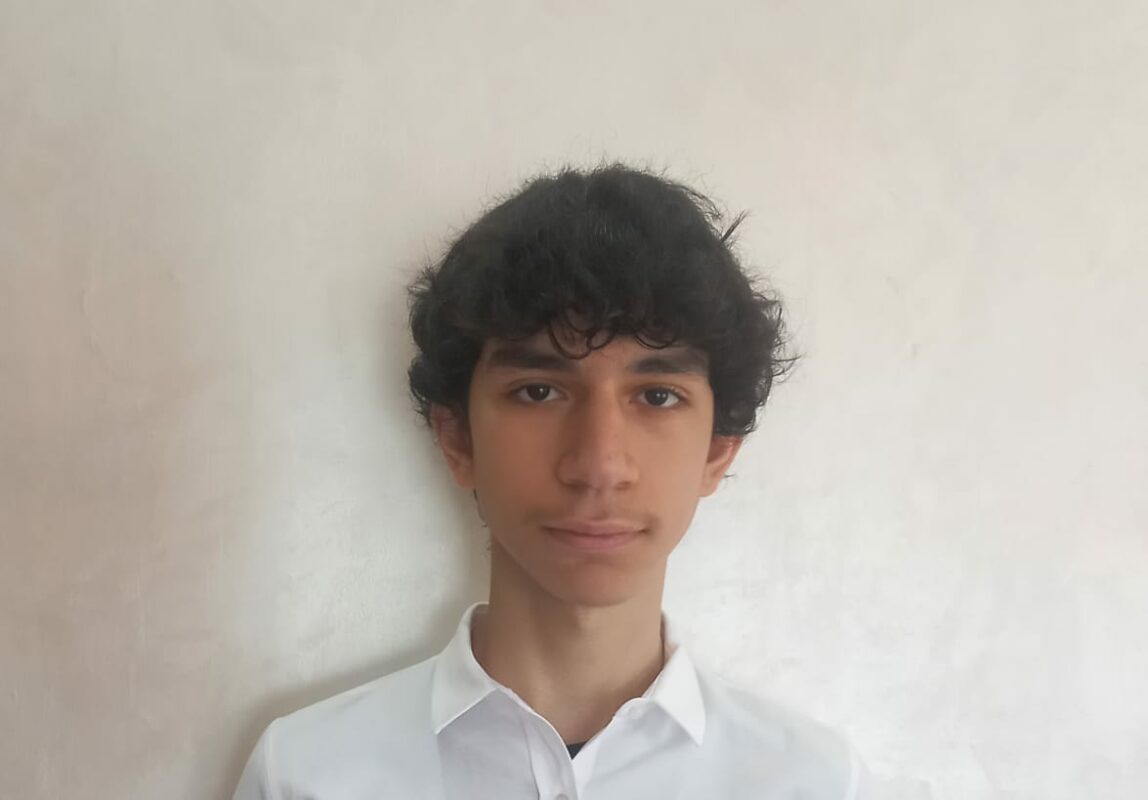Mohammad and his classmates have come up with a prize-winning business idea – a jobs website and app that connect people with and without disabilities to home-based working opportunities.
Mohammad, 16, explains that jobhunting in Jordan is already difficult, and that people with disabilities face extra barriers finding work. His team’s idea aims to address some of those challenges. ‘Our idea is a connecting service that links people with disabilities, wherever they are, with jobs,’ he explains. The service will be open to all, with a particular focus on craftspeople, but fees will be waived for users with disabilities.
This is a cause particularly close to Mohammad’s heart, because one of his friends has a disability.
‘People with disabilities have very low chances of finding work for lots of different reasons,’ Mohammad says. ‘Not all workplaces are accessible, especially here in Jordan, and some people can’t manage a job where they work for eight hours a day.’
The team’s concept saw them crowned the national winners of Jordan’s Enterprise Business Challenge in May 2023. The programme, delivered through our partner INJAZ, gives school students across Jordan the chance to develop entrepreneurship skills through coaching, mentoring and an online simulation game. Teams of teenagers then develop and pitch their own business ideas in a national competition.
‘When I heard we’d come first I was very excited and happy, and the rest of the team were too,’ Mohammad recalls. ‘We all went to have breakfast together to celebrate.’
A pathway to progress
Mohammad explains that the Enterprise Business Challenge programme started off with theoretical learning, before moving into simulated and real-world business development practice. He describes how the online game gave his team the chance to experience all the key steps and decisions involved in setting up a business.
‘You have to choose what type of shop to run and then you simulate the process over eight weeks. We had to select prices for the goods we were selling, and to set the salary for our employees and decide their hours. Then we had to create a budget and start buying and selling things. Each week we had a new problem to solve.’
Building on the skills they learned, Mohammad and his teammates, a mixture of young Jordanians and young refugees, then started developing their own idea, dividing the business roles between them. With strong digital skills, Mohammad led on website development – and their site is already live.
A challenging job market
Mohammad stresses the importance of digital skills, especially for young people trying to find work in a saturated job market. Youth unemployment in Jordan stands at almost 40% – one of the highest rates in the world.
‘It’s difficult to find work here in Jordan,’ he says. ‘Digital skills are very, very important… You have to know how to market yourself online and have strong communication skills if you’re going to find work.’
Mohammad’s business idea aims to help address the extra challenges that people with disabilities face in this area – but he also sees growing opportunities in the digital sphere. ‘Working virtually could be a very good option for people with disabilities, so it’s important that they develop digital skills,’ he explains.
Mohammad explains that finding work will also be particularly challenging for his schoolmates who are refugees, who make up 40% of all the pupils at his school. ‘Refugees face all the same challenges as other people, and extra ones too,’ he says.
The next generation of job creators
According to the UN Refugee Agency, Jordan hosts the second-highest number of refugees per capita in the world. Most are from neighbouring Syria, where the civil war has been raging for 12 years. The ongoing crisis creates challenges for both refugee and host populations, especially with unemployment rates already high.
In this context, the Enterprise Business Challenge programme aims to inspire and upskill young people from both communities, encouraging them to consider entrepreneurship as an option, so that they themselves can become job creators. In 2022/23 the programme reached over 13,000 young people, making it King’s Trust International’s largest single programme.
Since 2023, with support from the Abdul Aziz Al Ghurair Education Fund, the programme has drawn half of its participants from refugee communities, and half from Jordanian communities.

